- Home
- Margaret Lashley
What She Forgot Page 8
What She Forgot Read online
Page 8
“Isn’t that where you get your eyes examined?”
Smalls laughed. “We’re going to get clients. Soon. I can feel it in my bones.”
“Then you should get your bones and your head examined. You might be certifiable.”
“Au contraire, mi amigo. Listen to this.” Smalls mashed a button on the office phone. The tinny voice of the recorder said: “You have no new messages.”
Blatch sneered. “And that’s supposed to make me feel better?”
“Crap. No. Hold up.” Smalls hit rewind, then replay. A man’s voice came over the speaker.
“I don’t know if you are the right kind of people to call, but I don’t want to go to the cops. I’ve given them their chance. All this time, and they’ve done nothing. Anyway, I got this letter in the mail. It’s a long story. I need to find out if it’s true.
“Call me if you think you can help. My name’s Bill Snyder. My sister disappeared nearly two years ago. I don’t know who else to talk to about it.”
Smalls punched a button to stop the recording, then wagged his eyebrows at Blatch and said, “Ka-ching!”
Chapter Seventeen
“FREAKING SPIDERS!” Deanna gasped and bolted upright in bed, the sheets clinging to her sweat-drenched body.
She’d had the dream again. Spiders spinning webs in her hair. Spiders crawling all over the bed. A spider lying in wait at the bottom of her teacup ....
Deanna shivered, trying not to recall her dream. Spiders were her mother’s friends, not hers. Deanna’s fear of spiders was borderline pathological. As a psychologist, she knew it was ridiculous. But she couldn’t shake the feeling they were out to get her—to trap her in their silken webs, to steal away her vital fluids ....
“Ugh!” Deanna ran a hand through her hair to make sure no creepy crawlies were lurking there. She looked up at the ceiling. “Of all the bad movies in the world, why did you have to be in Tarancula Now, Mom?”
For as long as she could remember, Deanna had suffered from arachnophobia. She’d have blamed her mother solely for it if she hadn’t been aware of just how common the fear of spiders was. More people hated spiders than clowns. In fact, only glossophobia, the fear of public speaking, and necrophobia, the fear of death, topped the fear of spiders in the human population. All over the world, nearly one in three people suffered from an irrational fear of the eight-legged creatures.
Deanna shot a glance under the covers to make sure no spiders were hiding there, then crawled out of bed. She padded to the kitchen to make coffee, but one glance at the clutter and garbage changed her mind. It would take her an hour to find the coffee and filters amidst all the mess. And if she did, then what? How sanitary would they be?
The weight of the tangled, trash-filled world her mother had left behind pressed in on Deanna from all sides. She needed to get out. Get some air. Go for a walk. Clear her head.
She peeked out between the kitchen blinds. The rain had stopped sometime in the night. The sun was up. A glance at the clock on the wall told Deanna it was quarter to eight. She’d slept nearly twelve hours. She smiled.
“Take that, stupid spiders.”
AFTER A LONG, HOT SHOWER, Deanna felt a bit of lightness returning to her soul. The dread and doom of yesterday had faded considerably. Deanna smiled to herself. Buoyancy was the trait she appreciated most about herself.
Perhaps it was innate within her, or perhaps she’d learned it from experience, but Deanna was resilient against moroseness. Like a fishing bobber, no matter how far she sunk into self-pity, grief, or even despair, Deanna simply couldn’t hold the depth of those negative feelings. In short order she would find herself rising to the surface, rays of hope, like sunlight, brightening her spirits.
It was a trait she was certain she hadn’t inherited from her mother. Melody Young seemed to have based her entire life around feeling sorry for herself. Her mother’s never-ending pity parties had entrenched within Deanna a deep revulsion of self-indulgence. Her compassion for it, even within herself, was next to nil. “Pick yourself up by your bootstraps and move along,” was Deanna’s mantra. Just how or from whom she’d gotten her ability to shake off depression, Deanna had given up trying to figure out. Instead, she’d chosen to simply enjoy her natural ability to swim, rather than sink.
Deanna ran a brush through her damp hair and let it air dry into soft, golden curls. She applied a light touch of pink lipstick, and wiped the last traces of yesterday’s mascara from under her hazel eyes.
Good enough for a morning walk, she thought, and padded back to her bedroom. She threw on jeans, a t-shirt, and her walking boots, then grabbed her coat from the side chair by the bed and headed for the front door. But as she shouldered into the black woolen overcoat she’d brought from New York, Deanna realized it was much too heavy—and somber—for the sunny Florida weather awaiting her outside.
She tossed the coat on an armchair and opened the musty closet by the front door. As she searched for an alternative, Deanna spied her mother’s ancient, now totally socially unacceptable, leopard-skin coat. She pulled it out. It fell apart in her hands, the victim of untold generations of moths. Deanna left the coat in tatters on the closet floor and pulled out a hip-length, cream-colored trench coat.
The sight of it caused Deanna’s lips to curl. She’d bought the simple, all-weather coat in Italy during a brief trip abroad the spring she’d graduated from college. She gasped slightly at the thought. She’d been twenty-two at the time.
The jacket was a bit worse for wear, but not too shabby, thanks to moths’ preference for natural animal skins rather than polyester blends. Deanna shrugged into the coat. Pleased that it still fit, she hoped it also still retained a trace of the optimistic young woman who’d purchased it all those years ago.
She slipped a bare hand inside the right pocket. She felt something inside. Her hand jerked back as if bitten. But then Deanna’s logic quickly overruled her instinct. Whatever was in her pocket hadn’t felt like a spider.
Deanna reached inside the pocket again and pulled out a slip of paper. As she unfolded it, she realized it was a relic from the past—a résumé from her college days.
The lavender hue of the paper cued a memory. She’d put the résumé together right after she’d earned a bachelor’s degree in Communications from the University of South Florida. Her mother had insisted on a secondary degree as a fallback plan. Melody Young had been convinced her daughter couldn’t make it through the heady curriculum required of a master’s degree in psychology.
Despite all dire predictions, Deanna had proved her mother wrong.
Deanna smiled, thinking about the naïve girl she’d been back then. Before she’d become a psychologist. Before she’d started her practice in New York City. Before patients like Joel Bernstein had taught her the depths of human depravity ....
“Too dark. Use flash.”
The words escaped Deanna’s lips of their own volition, as if they’d been stored away in the muscle memory of her mouth. She hadn’t thought of the phrase in ages. It was a silly saying she and Jodie Havenall had adopted from her mother’s clunky old Polaroid One-Step camera.
As teenagers, the two girls had been fascinated by the stiff, blank squares spit out by the camera, and had watched eagerly as they’d magically developed into the photographs they’d taken. The two girls were also fascinated that the camera talked. Before each shot, the One-Step spouted photography advice in a tinny, Asian accent that set the girls into hysterics. They especially loved it when the camera said, “Too daak. Yuz frash.”
Too dark. Use flash.
One day, when Deanna had been upset over her mother’s criticisms, Jodie had tried to lighten her mood by mimicking the camera. “Come on, Dee. Too daak. Use frash.” They’d both broken into giggles. From then on, the phrase had become a private joke between the two girls.
It’ll be good to see Jodie again, Deanna thought as she buttoned the trench coat. She suddenly felt lighter. Younger, even. As if she’d been ma
gically transported back to Italy. She was no longer a tired, worn-out psychologist. She was a beautiful, young spy in an Italian trench coat.
Deanna’s shoulders lost their slump, and a weird sensation caused her heart to thump faster. As she walked toward the front door, she cocked her head, trying to put her finger on the feeling.
Happy? No. Silly? Not quite.
Giddy?
She hadn’t felt giddy since—never. Still, there it was.
Giddy.
Deanna grinned, wrapped a scarf around her neck, donned a pair of her mother’s huge, movie-star sunglasses, and slipped out the front door into the sunlight.
Then she cringed at the state of the front yard.
The lawn and flower beds had gone to weeds. Thankfully, the overgrown ligustrum hedges lining the yard hid most of the shabbiness from neighbors and passersby. Deanna walked to the edge of the yard and stepped into the street. It was like stepping through a portal into a better world beyond.
Just across the narrow street, a sidewalk abutted a seawall that held the dark, shimmering waters of Coffee Pot Bayou, a narrow inlet of water flowing into Tampa Bay. To Deanna’s left, a string of white balustrades arched over to the opposite shore—the lovely old Snell Isle Bridge. Across the shining water, elegant mansions of varying styles stood as proud as the pioneers who’d built them in the early 1900s.
Deanna’s family home once held pride of place among these grand dames. A stucco-clad, turn-of-the-century Spanish Revival, it boasted arched entryways, wrought-iron balconies, a tower, and a clay-tiled roof. But thanks to years of neglect, Deanna feared the once beautiful house had been reduced to an investor’s dream—the worst house in the best neighborhood.
I wonder what the house is worth, Deanna thought as she crossed the street, taking in the view. On her long list of things to do was to call a few realtors and get an estimate of its value. But for now, she let the idea rest. She had more pressing issues.
I need a cappuccino, and badly, she thought. She turned to her right and headed east along the sidewalk abutting the seawall. Dark, brackish water splashed at the wall and the many docks jutting from it into the bayou. In the middle of the water, a patch of mangroves obstructed the view of the mansions on the opposite shore. The small stretch of land went by the unimaginative moniker of Bird Island.
Not too far ahead in the distance, the sidewalk curved to the right and headed south. The corner marked the spot where the mouth of Coffee Pot Bayou spilled into Tampa Bay. The sidewalk widened there, and bordered the northernmost edge of Northshore Park. The lovely greenbelt stretched a good half a mile along Tampa Bay, tempting visitors with its verdant lawn, tropical, flowering Poinciana and Tabebuia trees, palm arboretum, public swimming pool, and oak-shaded park benches offering stunning views of the bay.
At the southern end of the park stood The Vinoy, a grand old hotel, after which Deanna’s house had been modeled. Once on the verge of being torn down, the hotel was now a ritzy destination resort, complete with a private marina. It took its own pride of place on the edge of the recently rejuvenated shopping and dining district that, during the past two decades, had been razed and rebuilt along Beach Boulevard.
St. Petersburg’s renewal over the last twenty years reminded Deanna of her own attempt at remaking herself. Turning a city’s derelict buildings into boutiques and coffee shops seemed like child’s play compared to rewriting her own faulty programming. To Deanna, her mother’s unwelcome imprint upon her was still abundantly and unwelcomingly clear.
Too dark. Use flash, Deanna reminded herself and looked up at the sky.
As if summoned to cheer her on, three pelicans soared soundlessly over Deanna’s head, then dove headfirst into the bay. Deanna watched as each, in turn, bobbed back up to the surface, their stretchy, balloon-like throats brimming with baitfish.
Deanna smiled. The universe would provide.
Chapter Eighteen
“SHEESH! HAVE YOU CALLED him back yet?” Blatch asked Smalls after hearing the phone message.
“No. I didn’t want to sound too eager.”
“Eager?” Blatch’s brow furrowed. “Forget eager. Just try not to sound desperate. Give him a call. Now, before he finds someone else.”
Smalls nodded, his lips a tight, white line. “Roger that.” He swiveled in his chair and quickly pecked the digits into the office phone. “It’s ringing,” he whispered, and mashed the speaker button. The two men held their breath as the phone rang once, then twice, then a man’s voice picked up.
“Hello?”
“Mr. Snyder? Private Investigator Barney Smalls of Blatch & Smalls Discrete Investigations, returning your call. How may we be of service?”
Blatch grimaced at Smalls’ hokey stab at formality, hoping it had sounded better on the receiving end.
“Are you interested in helping me find my sister?”
“Yes. Of course,” Smalls said, nodding eagerly at Blatch. “We normally start with a preliminary interview. No obligation. No fee unless we take your case.”
The two men exchanged hopeful expressions. Blatch chewed a nail as they waited for Snyder to speak.
“Okay. That sounds good.”
“Excellent,” Smalls said. “We’re booked until Wednesday—”
Blatch scowled and whacked Smalls lightly on the back of the head.
Smalls shot Blatch a dirty look, then regrouped. “Hold on. My secretary just informed me a client had to reschedule this morning. We have an opening at ten o’clock today. Does that work for you?”
Blatch crossed his fingers and offered up a quick prayer to any god who might be interested and otherwise unoccupied.
“Yes. Okay. I can come in at ten.”
Smalls grinned and shot Blatch a thumbs up.
“Excellent,” Smalls said. “Looking forward to meeting you, Mr. Snyder. Be sure to bring the letter with you.”
“Okay.”
“Perfect. See you then.” Smalls clicked off the phone. “Hot damn! We’re on our way!”
“Yessss!” Blatch yelled. He high-fived Smalls and then reached for his coat.
“Where’re you going?” Smalls asked.
“To find us the freaking secretary you just lied and said we had.”
“Oh. Right.” Smalls chewed his lip. “What are you going to do? Pick somebody up off the street?”
Blatch smirked. “Not unless I have to. Thankfully, I’ve got one more interview scheduled for this morning. Fingers crossed, partner.”
“Done.” Smalls crossed his fingers and grinned. “Good thing I’m an optimist, right?”
Blatch rolled his eyes. “Yeah.”
“And a genius.”
Blatch yanked open the door. “Careful, partner. You’re already pushing your luck."
Chapter Nineteen
DEANNA WAS STILL A bit giddy when she sat down at a tiny, outdoor table in front of the Cordoba Café. The half-mile walk along the bay had further lifted her mood, and the sunshine had put color in her cheeks. She ordered a cappuccino and was pleasantly surprised to find it every bit as good as any she’d had at the pretentious coffee shops in New York—and half the price. The view of colorful boats bobbing in the bay across the park was an added bonus.
As she took a second sip, a cellphone chimed. Deanna reached into her coat pocket for her phone and pulled out the old résumé along with it. The call turned out to be for a woman two tables over. Deanna set her phone on the table, unfolded the purple sheet of paper, and amused herself by reading it over. She barely recognized herself. The naïve hopefulness conveyed in her writing nearly made her blush. When Deanna spotted a typo in the first paragraph, she cringed, then laughed out loud.
I might make a lot of mistakes, she thought, but I try to not to make the same ones twice.
Deanna was about to fold the résumé to put it away when a man snatched it from her hand. Deanna’s back stiffened, and she almost gasped when the man brazenly seated himself at her tiny table for two.
“Hi,�
�� he said. “Nice to meet you.”
Too stunned to speak, Deanna stared at the stranger. Instinctively, her hand snaked its way into her purse to retrieve her pepper spray. The man paid her no mind. His eyes were intent on her résumé.
“You have any kind of criminal record?” he asked as he read her now ancient work history.
Flabbergasted, Deanna fumbled, “No, but—”
“You know how to type?”
“Well, I—”
“Deanna Young,” he read aloud. “I see you have a degree in Communications from USF.”
“Uh ... yes.”
“That could come in handy. Looks like you got that a while back. What have you been doing since?”
Deanna fumbled. “I’m sorry, but there’s—”
The man’s cellphone chimed. He glanced at the screen and held up a finger. “Hold that thought. Got to take this.” He shifted in his seat and looked out at the bay as he spoke on his phone. “You’re kidding. Sheesh.”
Deanna debated whether to stay put or slap some money on the table and leave. She looked around for the waitress. No luck. She pulled a twenty from her wallet. Was it worth that much to cut and run?
Stuck in indecision, she studied the man in front of her. Was he a con artist? No. The cut of his brown hair was too average. So were his clothes. Off the rack. Probably JC Penny. His leather shoes were chosen for comfort over style, and could use a polish. No, the guy wasn’t a huckster. At least, not the kind Deanna had grown used to spotting on the streets of New York City.
The man’s nose seemed too serious for the rest of his face. It was a bit too wide and angular compared to the narrowness of his cheeks. His deep-set eyes were almost the same shade of brown as his hair. Deanna smiled unexpectedly. The man reminded her of the boys she’d met that summer a million years ago in Rome ....
“Look. I’ll meet you at the office,” the man said into his cellphone. “Ten minutes. Right.” He clicked off the phone, jabbed a finger at the résumé, and looked Deanna square in the eye. “You know there’s a typo here, right?”

 Val Fremden Mystery Box Set 1
Val Fremden Mystery Box Set 1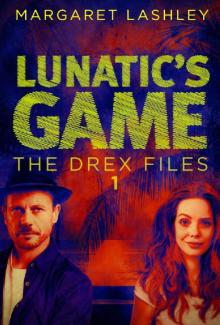 Lunatic's Game
Lunatic's Game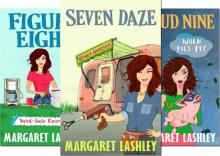 Val Fremden Mystery Box Set 3
Val Fremden Mystery Box Set 3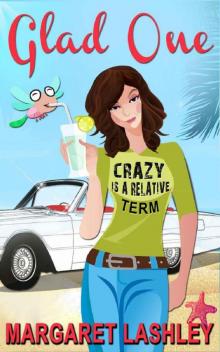 1 Glad One - Crazy is a Relative Term
1 Glad One - Crazy is a Relative Term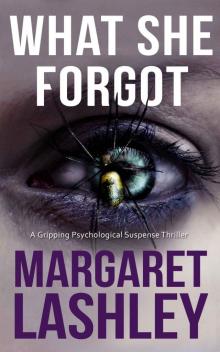 What She Forgot
What She Forgot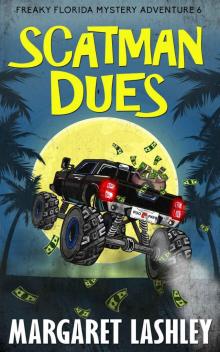 Scatman Dues (Freaky Florida Mystery Adventures Book 6)
Scatman Dues (Freaky Florida Mystery Adventures Book 6)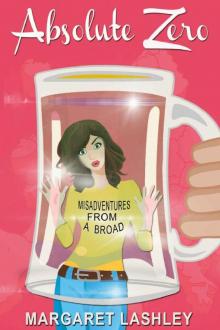 0.5 Absolute Zero - Misadventures From A Broad
0.5 Absolute Zero - Misadventures From A Broad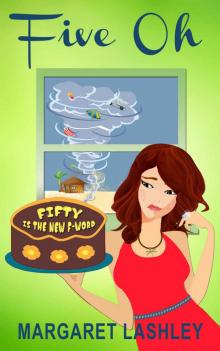 Fifty is the New F-Word
Fifty is the New F-Word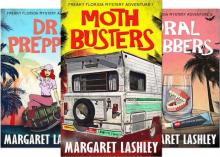 Freaky Florida Mystery Adventures Box Set
Freaky Florida Mystery Adventures Box Set Family Fruitcake Frenzy
Family Fruitcake Frenzy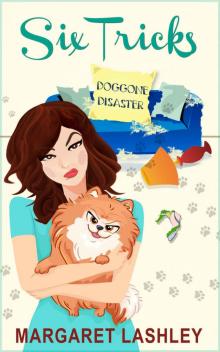 Doggone Disaster
Doggone Disaster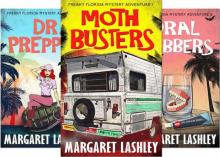 Moth Busters, Dr. Prepper, Oral Robbers: Freaky Florida Mystery Adventures 1, 2 & 3
Moth Busters, Dr. Prepper, Oral Robbers: Freaky Florida Mystery Adventures 1, 2 & 3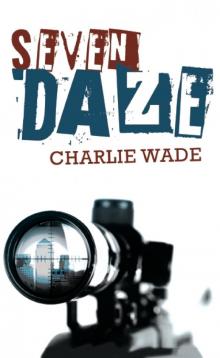 Seven Daze
Seven Daze Two Crazy_Fickle Finger of Fate
Two Crazy_Fickle Finger of Fate Two Crazy: Fickle Finger of Fate (A Val Fremden Mystery Book 2)
Two Crazy: Fickle Finger of Fate (A Val Fremden Mystery Book 2)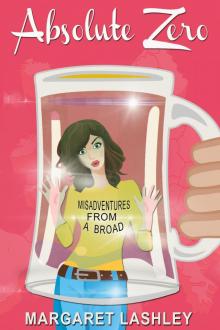 Absolute Zero_Misadventures From A Broad
Absolute Zero_Misadventures From A Broad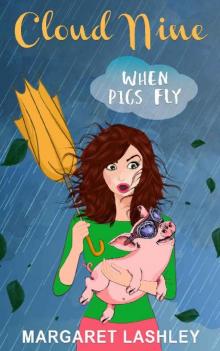 Cloud Nine- When Pigs Fly
Cloud Nine- When Pigs Fly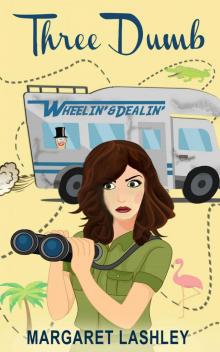 Three Dumb: Wheelin' & Dealin' (A Val & Pals Humorous Mystery Book 3)
Three Dumb: Wheelin' & Dealin' (A Val & Pals Humorous Mystery Book 3)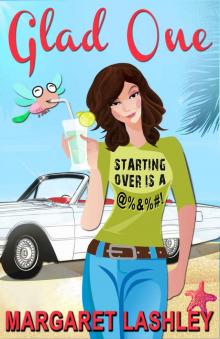 Glad One: Starting Over is a %$#@&! (Val & Pals Book 2)
Glad One: Starting Over is a %$#@&! (Val & Pals Book 2)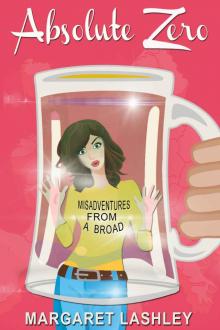 Absolute Zero: Misadventures From A Broad (Val & Pals Book 1)
Absolute Zero: Misadventures From A Broad (Val & Pals Book 1) Glad One_Crazy is a Relative Term
Glad One_Crazy is a Relative Term Seven Daze_Redneck Rendezvous
Seven Daze_Redneck Rendezvous Seven Daze: Redneck Rendezvous (A Val Fremden Mystery Book 7)
Seven Daze: Redneck Rendezvous (A Val Fremden Mystery Book 7) Val & Pals Boxed Set: Volumes 1,2 & the Prequel (Val & Pals Humorous Mystery Series)
Val & Pals Boxed Set: Volumes 1,2 & the Prequel (Val & Pals Humorous Mystery Series)